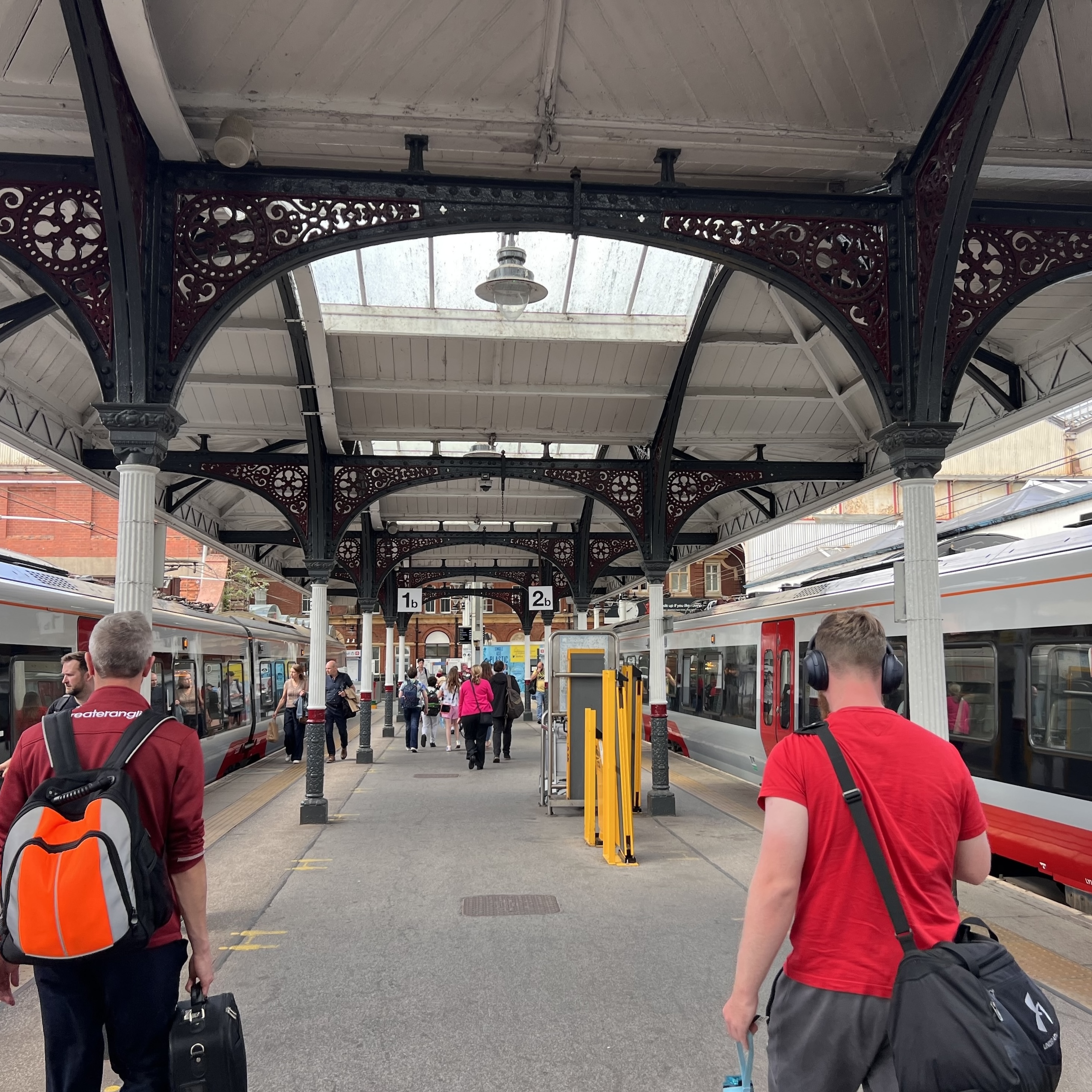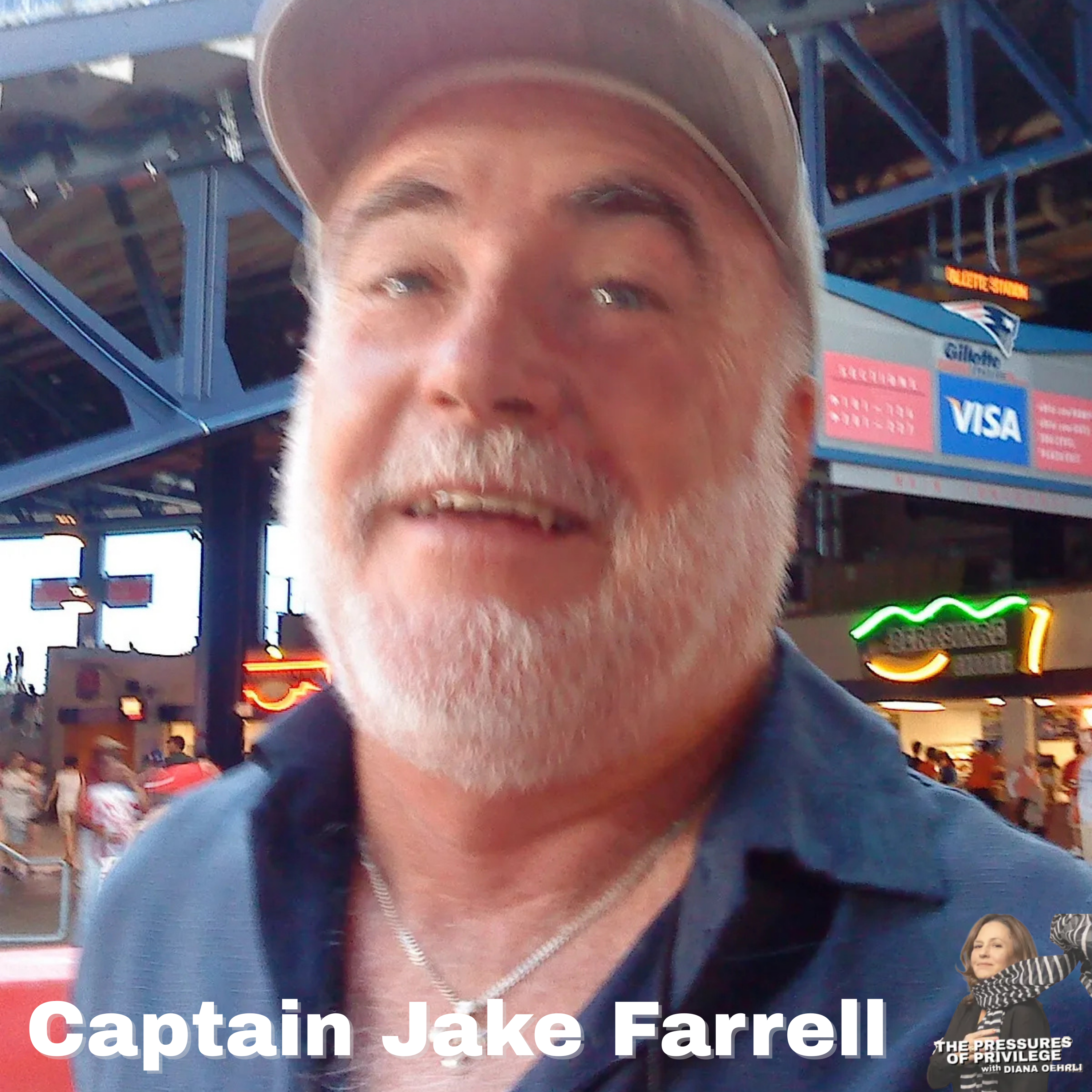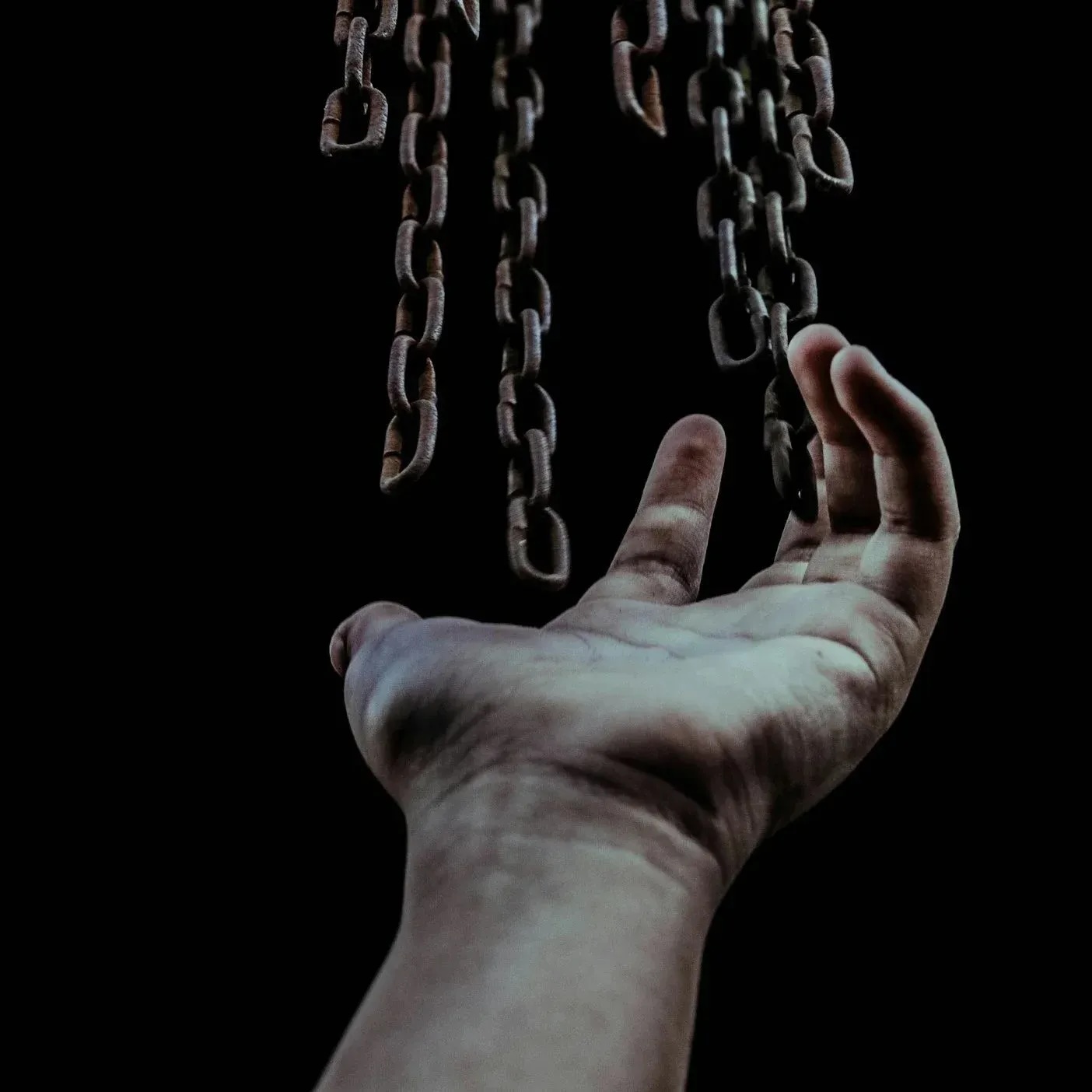Episode Transcript
[00:00:02] The Train to Letting Go we often hear that we spend our 40s and 50s undoing the damage from our 20s and 30s.
[00:00:11] Usually that refers to unwise marriages, mind altering substances, overwork, overspending, and yes, accumulating money, houses, cars, portfolios and prestige. In the first half of life, we collect. In the second, we begin the long, necessary journey from accumulation to liberation.
[00:00:30] The motivation, security, happiness, connection, and, let's be honest, sex.
[00:00:36] Then something shifts. We trade ambition and speed for clarity and depth. The hormonal fire cools. We become more discerning.
[00:00:45] Assuming we live to 100. The second half of life becomes a slow letting go.
[00:00:51] We're burnt out. We're sandwiched between caring for aging parents and putting out fires caused by our overprotected adult children.
[00:00:59] At this point, the last thing we want is more responsibility.
[00:01:03] The things that start chasing you back by my 40s and 50s, I became masterful at managing productivity was my superpower. I could juggle multiple life projects while launching new professional ones. But the things I once chased start started chasing me back.
[00:01:19] Suddenly I needed assistance and entire weekends just to maintain the life I'd built. And then I thought, how are my children going to manage this? Do they even want to? By 16, many people of means I know are exhausted. They're not weak. They've built complex lives. They no longer enjoy lives that are over Scheduled the View from the Train Four days ago, I was on a train to Norwich heading to karate camp.
[00:01:46] It was hot and crowded and I was without a window seat. As we pulled out of London, a teenager barked into his phone, my money hasn't hit my account yet. A swirl of strange coughs and voices surrounded me. I kept glancing at my rather too large suitcase stored too far away, a metaphor for the weight of everything I'd left behind in the US At Ipswich, the French couple across the aisle got off.
[00:02:12] The woman had been eating lentil salad out of a plastic container when the junk food laden cart came by. I asked for fruit. The girl chuckled and said, I have fruit tart.
[00:02:23] Then we just passed a town called Dis.
[00:02:26] What a strange name. As the train emptied, space opened around me. I could finally breathe. Cute little English towns flickered past. I could have been worrying about three different crises at that moment, but I wasn't.
[00:02:40] I was watching fields roll by and focusing on breath.
[00:02:44] Excitement filled my veins. I was on my way to spend four days with a hundred karate friends from around the world, including my first Swiss Sensei and various members of our New York City dojo.
[00:02:55] The weight of complex problems. Lately, I've started to look back on my 20s with something I didn't expect.
[00:03:01] Not regret, but nostalgia for the feeling of freedom.
[00:03:05] These days, my daily list is exhausting. Just to read coaching calls, podcast edits, blog drafts, a motivational interviewing course, bill paying, investment prospectuses, payroll grant research, credential renewal, board meetings, philanthropic calls, home maintenance projects, tax documents, travel logistics. Even the dog needs paperwork. I practice karate three to six times per week. The cars and Switzerland need inspection.
[00:03:33] And underneath it all, the relational problems that never stay put. The ones that follow me across time zones, that wake me up at 3am and have me answering the phone before I even breathe.
[00:03:45] Alastair's Backpack One of the happiest people I know lives completely differently. His name is Alistair. He owns practically nothing. His only commitment is to live in the tropics in winter and chase good weather in summer. When he works as a carpenter, it's for cash, and It's a simple nine to five, no more than 90 days.
[00:04:05] He rides a borrowed bike 20 miles each way. Then he returns to Central America.
[00:04:11] There he rises around 8am, makes coffee, lets out the chickens, feeds the dogs and collects eggs, which he doesn't eat because he's vegan.
[00:04:20] He toasts two slices of multigrain bread, spreads peanut butter and tops them with banana.
[00:04:26] He also eats pieces of pineapple, mango or papaya. He sweeps patios and maintains generators for the man who provides his housing.
[00:04:35] At noon he eats rice and beans with cooked vegetables. He naps at 3pm when the sun is gentler. He surfs. He takes cold showers and drinks red wine at dinner. In the north, he sleeps in a horse barn. In the south, he slumbers in a friend's wooden cabin with no air conditioning.
[00:04:52] Everything he owns fits in one backpack.
[00:04:55] His problems are immediate and solvable. Generator break. Fix it.
[00:05:00] Need food? Go to town. Want to surf? Walk to the beach? Mine.
[00:05:05] Mine. Sprawl across continents and generations.
[00:05:08] The medicine of immersion in some Native American traditions. When someone died, their possessions were burned along with the body.
[00:05:18] Nothing was left to burden the next generation. There was nothing left to cling to. All that was left was a clean slate.
[00:05:25] I'm starting to think they were onto something. And I'm reminded of the book Die with Zero.
[00:05:30] After four days immersed in friendship, karate, shared meals, and a gala dinner surrounded by world class art, I'm clearer on what I want. A life that's simple and rich with meaning.
[00:05:43] I want beauty, good food and people I love. I want to practice and pass on the things that were given to me. Karate, piano, writing.
[00:05:52] These four days reminded me how healing immersion can be. When I'm focused on technique and movement, the rest of the world disappears. My mind is my body. There's no room for shoulds.
[00:06:03] Though physically exhausted, I'm psychically refreshed. It's the same thing I experienced during a trauma workshop or during my coaching certification.
[00:06:12] Deep focus and and no divided attention.
[00:06:18] What stays, what goes. Modern life as we live it is broken. We accumulate, hoard, and pass down stuff nobody wants. We call it legacy, but it's just clutter. That's not life. I'm not chasing the next business strategy, nor am I building an empire. I'm trying to live and be useful to others.
[00:06:37] I dream of unplugging and becoming analog again.
[00:06:39] I learned a Japanese word this weekend. Yada. A simple, direct Japanese no.
[00:06:46] No explanations, no guilt. Because saying no to things is essential.
[00:06:50] No to five figure tax bills on furniture no one will sit on. No to problems that chase me across time zones.
[00:06:58] No to the exhaustion of trying to be everything to everyone.
[00:07:01] So sometimes, as the train pulls away from the city, the carriage empties.
[00:07:06] Each station stop brings less noise.
[00:07:10] Maybe that's the metaphor for the second half of life, not accumulating more passengers, but finally getting a window seat.
[00:07:19] And maybe, just maybe, it's remembering to bring a lentil salad.





